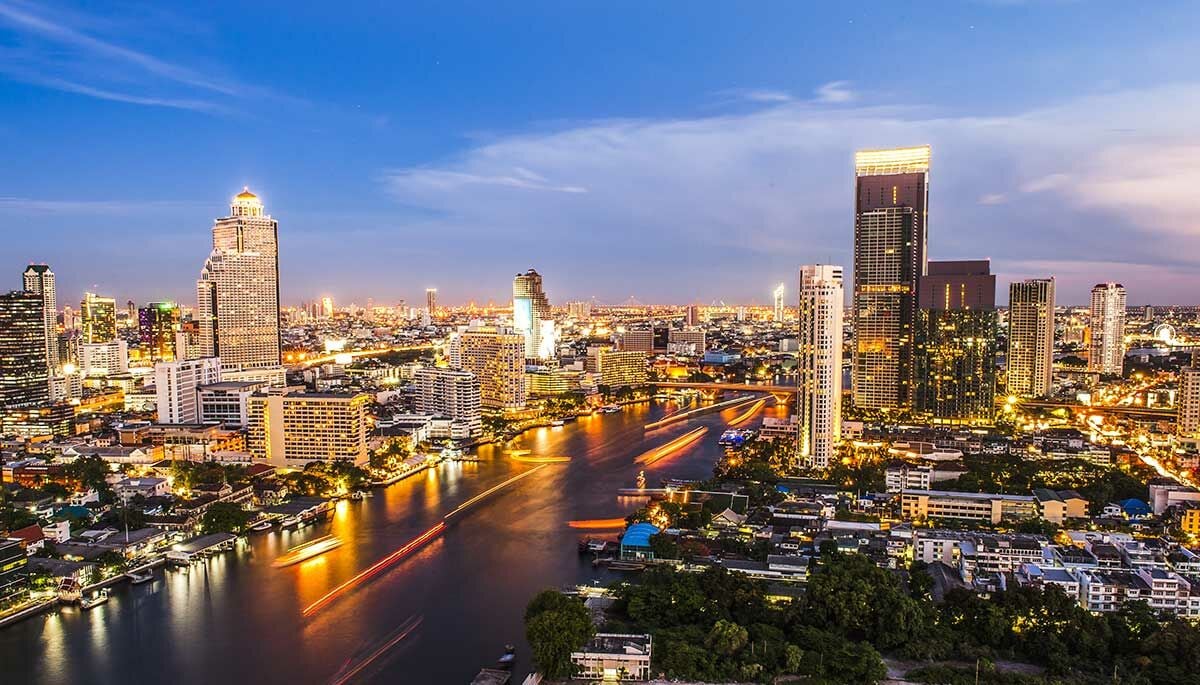Thailand’s biz boom buzzes past 90,000 as exports, tourism take off

Thailand’s business scene is buzzing, with new registrations expected to smash through the 90,000 mark this year. This surge comes courtesy of a rebound in exports and tourism alongside government stimulus measures kicking in as 2024 draws to a close.
According to Auramon Supthaweethum, the Director-General of the Department of Business Development (DBD), there was a promising 2.18% uptick in new business registrations in the first ten months of 2024, compared to last year, bringing the tally to 76,653.
October was a standout month with 7,267 new companies sprouting up, a nifty 9% jump from September. The boost is linked to upcoming infrastructure projects, a consumer and tourism revival, and the ongoing factory boom nationwide.
Bangkok Post reported that the DBD is bullish about the year’s end, forecasting a total upwards of 90,000 new registrations, let’s talk about a potential 5-15% surge. However, they’re keeping a close eye on external risk factors, such as global economic shakes from geopolitical tensions, China’s economic slowdown, and the unpredictable aftermath of the US presidential election.
Countries are watching keenly after Donald Trump’s November 5 election victory, with US foreign trade policies in the spotlight. Domestically, rising inflation, spurred by hiking oil and food prices, alongside mounting household debt, poses challenges. Financial institutions are tightening the purse strings on lending, and businesses are playing the waiting game, eager to see government stimulus policy details.
As of October 31, Thailand boasted 841,727 registered businesses with a combined registered capital of a whopping 22.3 trillion baht. The DBD is optimistic, predicting that fresh registrations could hit the 1 million mark next year.
Foreign investment
On the foreign investment stage, 786 foreign actors got the go-ahead to pour money into Thailand during the first ten months of 2024. This included 181 green lights via the foreign business licence channel under the Foreign Business Act of 1999, alongside 605 investments seeking certification or permissions through the Investment Promotion Act, the Industrial Estate Authority of Thailand Act, or via international treaty rights.
Foreign investment totalled a hefty 161 billion baht, with Japan leading the charge. A robust 211 Japanese investors contributed a massive 92 billion baht. Following suit, Singapore’s 110 investors added 15 billion baht, while China and the US each had 103 investors, with stakes of 14 billion and 5 billion baht, respectively. Not to be left out, Hong Kong chipped in with 57 investors totalling 14 billion baht.
In the bustling Eastern Economic Corridor (EEC), there were 251 foreign investors this year, making up 32% of total foreign permits granted, a 128% leap. Their collective investment hit 46 billion baht, a staggering 146% rise. Japan led here too, with 86 investors putting in 16 billion baht, trailed by China’s 59 investors and 8 billion baht, and Hong Kong’s 18 investors contributing 5 billion baht. Additional countries added 88 investors with capital injections totalling 16 billion baht.
Hot sectors attracting this investment fever included engineering services, auto parts and design services, installation, testing, repair, maintenance and training services related to machinery and equipment, core software system services, and contract manufacturing services.
Thailand is on an unprecedented upswing, with businesses sprouting like mushrooms and foreign investors eager to cash in on the ripe opportunities. This robust economic pulse signals a promising horizon for the nation’s prosperity and influence on the global stage.
Frequently Asked Questions
Here are some common questions asked about this news.
Why is Thailand witnessing a surge in new business registrations?
The surge is due to infrastructure developments, revived tourism, and government stimulus, despite global economic challenges.
How might geopolitical tensions impact Thailand’s business growth?
Geopolitical tensions could disrupt trade policies, affecting Thailand’s economic environment and business registrations.
What if Thailand reaches 1 million registered businesses next year?
Achieving this milestone could boost economic resilience but may also strain resources and infrastructure.
How do stricter lending standards affect local businesses in Thailand?
Stricter lending can limit access to capital, slowing business growth and economic expansion.
What role does the Eastern Economic Corridor play in foreign investment in Thailand?
The EEC attracts significant foreign investments, enhancing regional economic development and technological advancement.
Latest Thailand News
Follow The Thaiger on Google News:


























